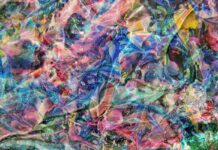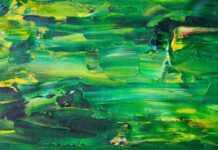Malayalam Poetry in Translation – 9
Translated by Aditya Shankar
(Translator’s Note: The finest of contemporary Malayalam poetry represents the latest poetic sensibility that is on view today. A poem that is able to mend its language and meaning, and blend into the issues of our time will break the barriers of language eventually. In fact, as a translator, I believe it becomes the need of other languages to grow and adapt to the new shapes of meaning that a poem carves for itself. My project ‘Malayalam Poetry in Translation’ is an attempt to showcase the work of some of the finest poets writing in Malayalam. I believe it is only apt to clarify in this note that new poetic sensibility is in no way co-related to the age of a poet, but is a product of her/his poetic outlook and awareness. Also, the scope of this translation series is limited to a sample size and do not encompass the entire spectrum of contemporary Malayalam poetry. Every notable poet manages to continually reinvent his poetic landscape and the poets featured in this series are no exception.)
*
Green
I discovered green.
It mounted my eyes
from the skirts of a hilltop girls’ school
and descended on earth.
It sprinted through the slopes in a drizzle
and sprung up as pepper elder.
Along with Johnkutty
from a colony on the other side of the hill,
I swayed my baby dick
and learnt to dangle
amidst the pepper elders.
If I manage to hang on
till the sun descends at Kunnukuzhi,
not just the bum and flanks,
but sight, memory, slate and cane
turns green as well.
Countless long days hung on
from Gundukadu colony
to Varambassery butchery.
Disobedient chandada from
the contours of the skirt,
talipot palms from the pleats,
plantains with
pleats and contours tangled
in an unforeseen wind,
crazy drumsticks rolling in the aisles,
rose apple, tamarind and cashew
in attire that is unknotted from waist to top
all kept dangling.
When I returned
after the summer vacation,
the girls’ school, naked as a newborn.
At the top,
skirts that graze around.
Below, gigantic portia.
They were out of reach.
As I watch,
the dark greens leave to graze the sky.
The relentless axe of sun cracks the rain.
Johnkutty at one end,
his colony at the other.
Gundukad school is permanently shut down.
In the steep Varambassery slope,
what dangles now is a red drain,
a lorry loaded with our childhood.
*
(Footnote: Gundukad, Varambassery and Kunnukuzhir are places in Thiruvananthapuram, Kerala)
(Translation of Pachca, Page 42, Aadiyadi Alanja Marangale, DC Books)
On the Night We Read Tsvetaeva*
An upstair room
The window moon —
Together we read
Marina Tsvetaeva
Can you hear?
Towards your window
of many hours ago,
I tune the congested moon.
Crystal, can you hear
now, the ruptured image
inscribed by moonbeams?
Though stoned and broken,
We have grown into one**.
Her testament slender like Nila***,
can you see it in his voice?
*
Footnote:
* Russian poet, a victim of the miseries of Russian revolution and Stalin’s fascist rule. She committed suicide at the age of forty one.
** From Marina Tsvetaeva’s poem, Poem of the End, about the separation of lovers.
*** Nila is the second longest river in Kerala, and often indicates the culture of the region than a river name.
(Translation of Tsveataevaye Vaayicha Rathri, Page 52, Aadiyadi Alanja Marangale, DC Books)
Kafka*
In the vengeful summer,
a crow perched atop a coconut tree
rends apart,
the shell-boring sunrays.
Abruptly, defiantly,
as the bird began to trench the sky
targeting an erect tree
beyond a thousand apartments,
it rained.
A man and woman who were mating
in the balcony of the twenty first floor
of one of those apartments
were stunned by the site,
a Kafka
who became a single line,
a single spread
across the rain.
*
Footnote:
* In Haruki Murakami’s Kafka on the Shore, the alter ego of central character Kafka is called Crow. In Czech language, Kafka means crow.
(Translation of Kafka, Page 27, Aadiyadi Alanja Marangale, DC Books)
About the Author:
Anwar Ali also known Anvar Ali (b. July 1966) is an Indian poet, lyricist, translator, and documentary filmmaker. He has been contributing poems and poetic studies in leading literary journals and periodicals since 1984. Mazhakkalam (The Rainy Season), 1999, is his first collection of poems. His poems have been translated into various Indian and foreign languages and are included in several anthologies of Malayalam as well as Indian poetry of the postmodern phase. His other important works include Atiyaati Alanja Marangale (Ye Trees, Swaying Ramblers), collection of poems, 2009, Eternal Sculptures, Poetry Collection in English, 2007, and, I Rappai, Novella, 1995.
About the Translator:

Aditya Shankar is a Pushcart Prize and Best of the Net nominated poet, flash fiction author, and translator. He edited Tiny Judges Shall Arrive (AHRC, Hong Kong), a selection of KG Sankara Pillai’s poems translated into English. His translations have appeared in the SAARC anthology of poetry, Muse & Murmur, Modern Poetry in Translation, Ethics in Action and elsewhere. His poems have been translated into Malayalam and Arabic and published from 20 or more nations. His poetry collections include After Seeing (2006), Party Poopers (2014), and XXL (Dhauli Books, 2018). His short films have participated in International Film Festivals. He lives in Bangalore, India . (https://adityashankar.ucraft.net/).














